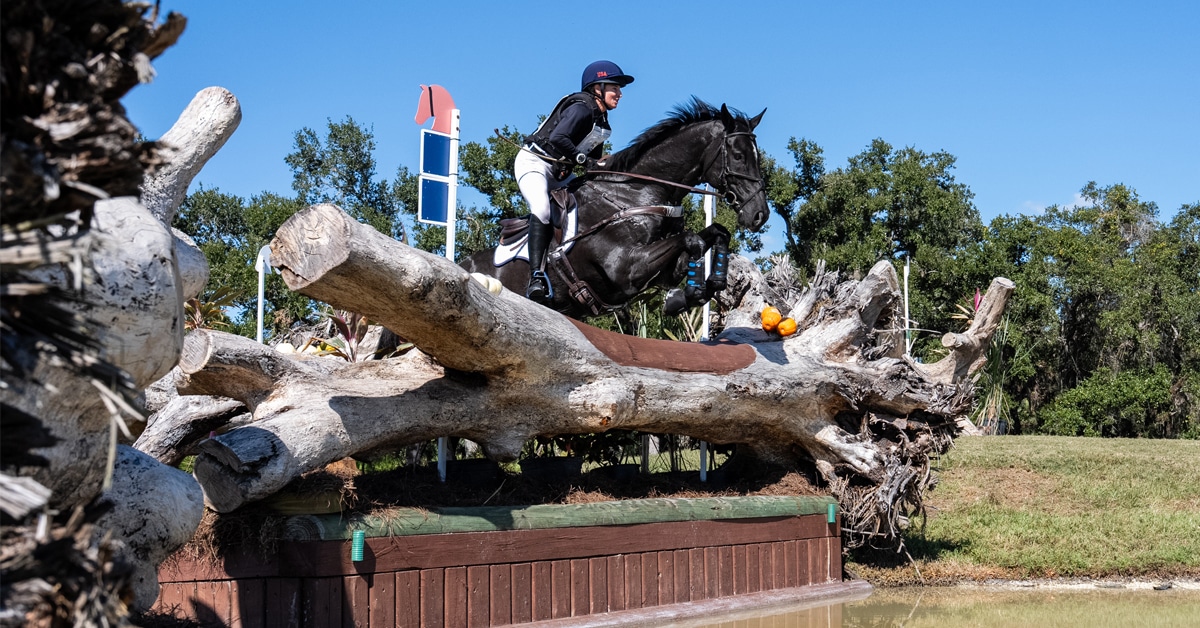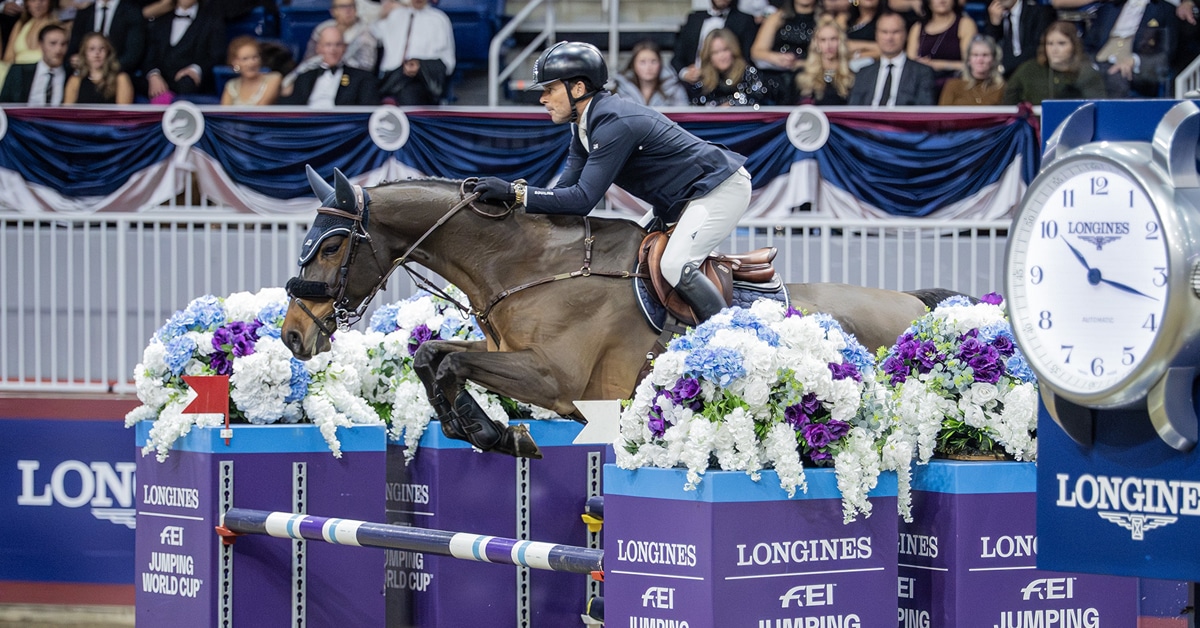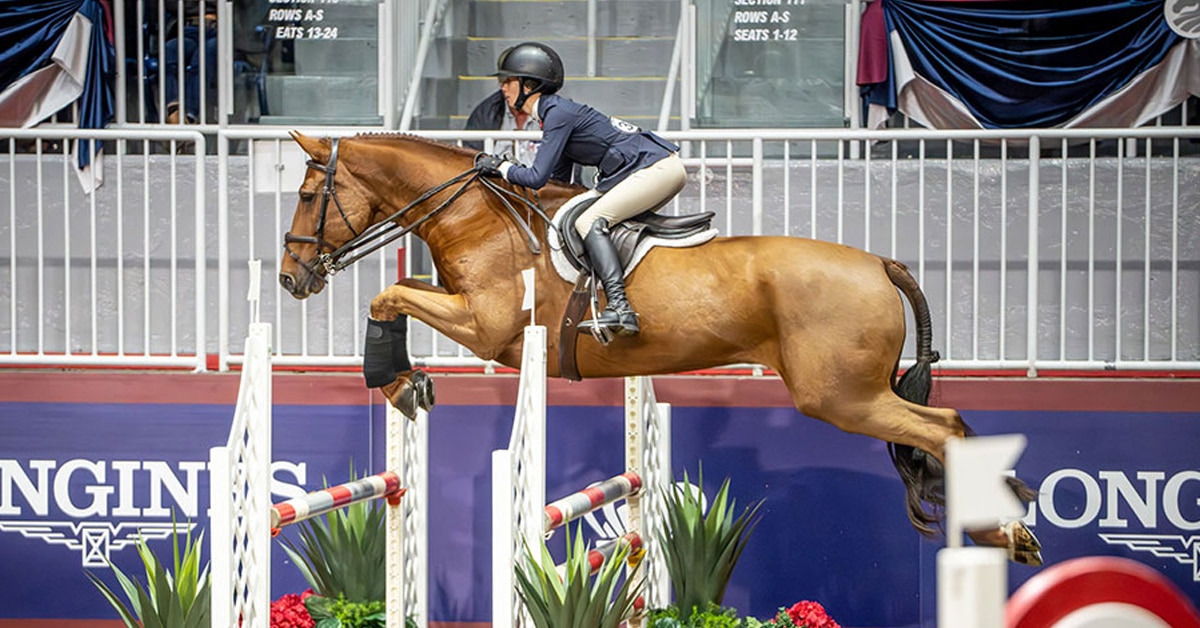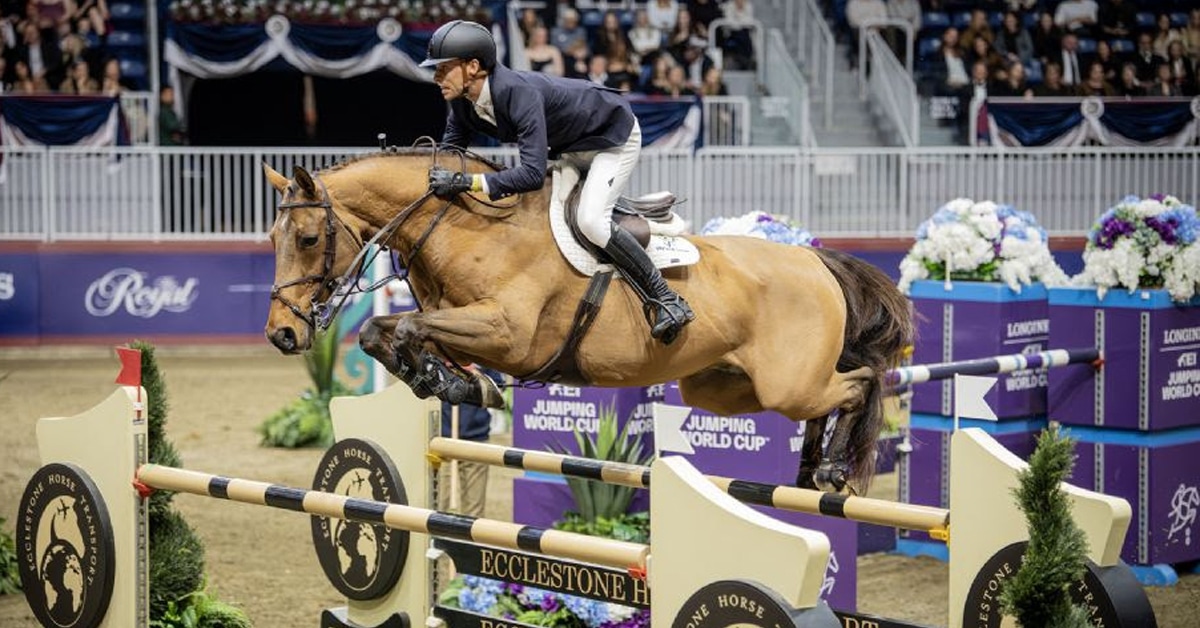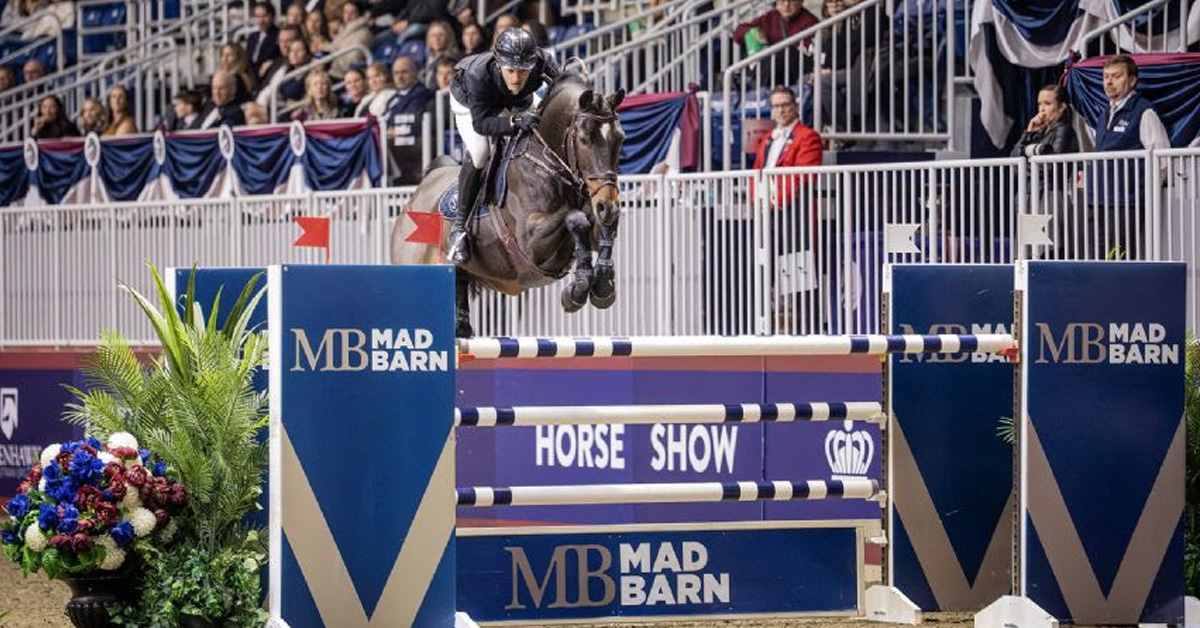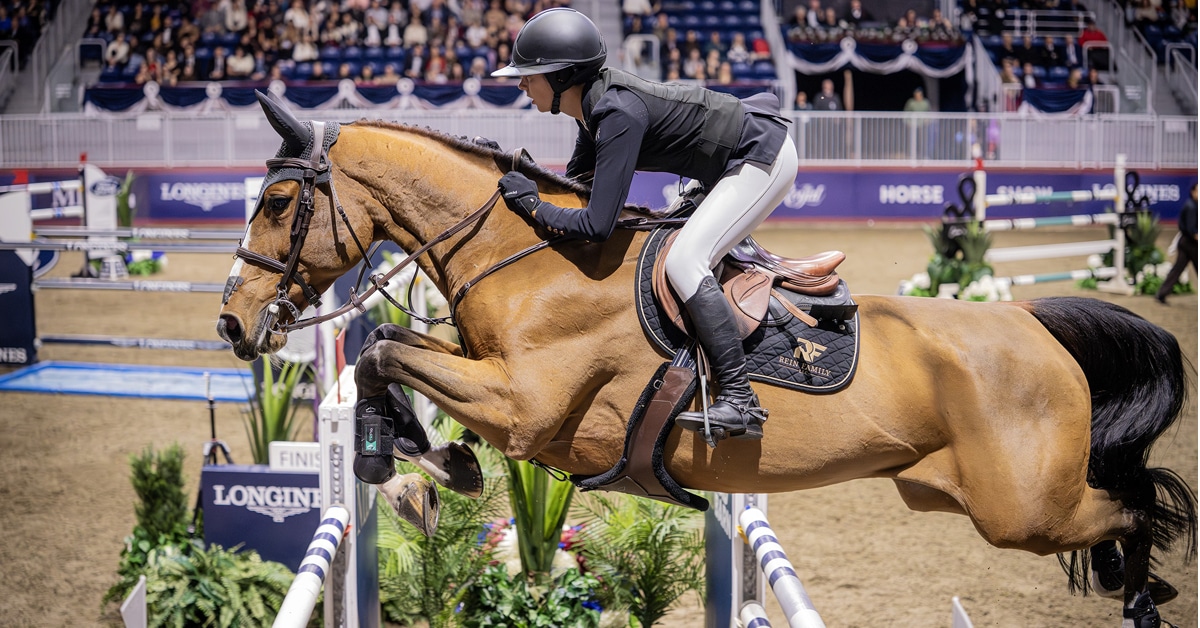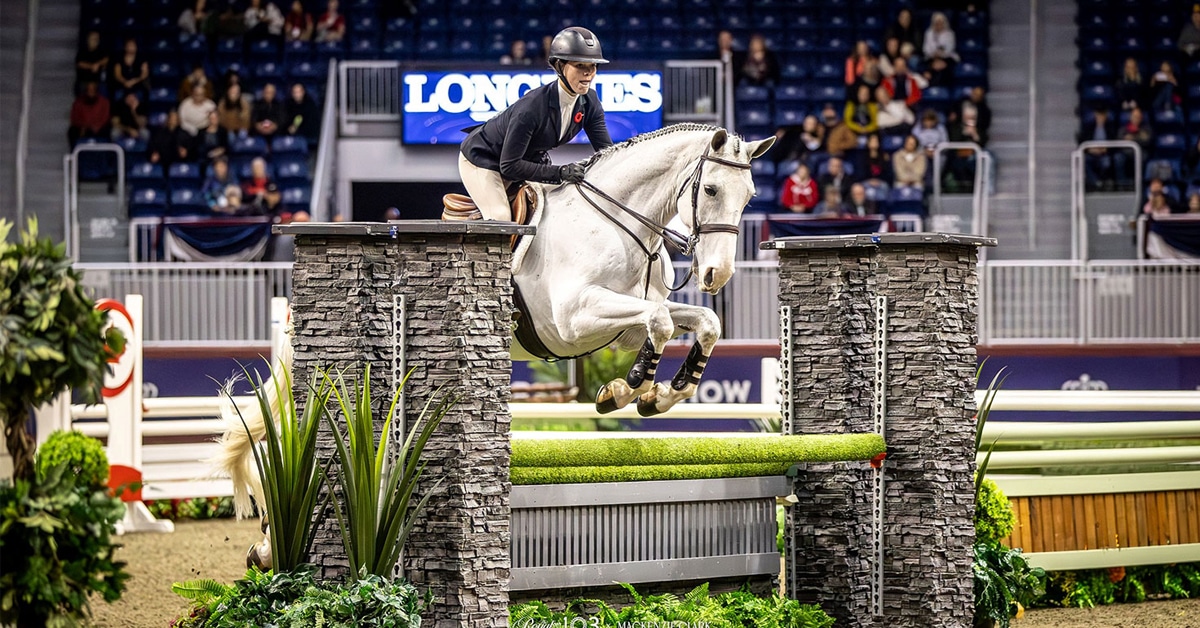A veterinarian who ignored the FEI’s equine herpes virus protocols and falsified data says he is glad to have been barred from officiating at international shows because the regulations are unworkable.
Marc Schelkens, a well-known vet in Belgium, claimed he was not the only vet bypassing the EHV protocols. He felt the FEI will struggle to recruit veterinary delegates if the process is not changed.
The FEI Tribunal suspended Schelkens for three years for breach of veterinary regulations and EHV-1 bylaws at several shows in Belgium last year. However, the Tribunal dismissed a further allegation that he brought the FEI into disrepute through strongly criticizing the protocols to other stakeholders. The Tribunal said this went against free speech.
An EHV-1 crisis halted FEI shows in mainland Europe last year for six weeks, after which biosecurity regulations were strengthened. One new requirement was for all horses to be examined upon arrival at the show venue, with their rectal temperatures recorded in the FEI HorseApp.
Schelkens was reported to the FEI in November after the foreign judge at the Lier CSI noticed him filling in the data on his phone, even though there could not have been time to have taken all the horses’ temperatures. In due course the chief steward at the Bonheiden shows in June and September 2021 testified that Schelkens had allowed examined and non-examined horses to mix and taken nasal temperatures, not rectal ones.
In his post-event reports as FEI veterinary delegate, Schelkens openly criticised the new biosecurity process and advised he was already thinking of quitting – he has officiated in senior roles at 144 FEI shows since 2011.
Extracts from his reports can be found here.
He alleged that FEI headquarters in Lausanne seemed unaware their EHV bylaws put horses in even more danger because of the impracticalities of making them wait in line. He said it would take 50 hours to test and record the data of 600 horses.
He said that any vet claiming to apply the bylaws must be “cheating.” He felt he was the only person worried about horse health. All he’d ever wanted was a constructive discussion about the bylaws but never got an answer to various emails until the FEI brought legal proceedings against him.
He concluded: “It is a pity that the EHV rules are so stupid. Knowing that they are just a theoretical umbrella for the FEI in case of an infectious outbreak, but that they are not effective, make it difficult to accept. Riders and officials are well aware of that.
“Stop those hypocritical, ineffective EHV rules and make the EHV vaccination mandatory as soon as possible.”
The Tribunal said: “The severity of the EHV-1 outbreak is not contested by the respondent [Schelkens] who strongly advocates for a vaccination of all FEI competing horses against the EHV-1 virus.
“However, despite understanding the seriousness of the situation, [he] adopted behaviour which could potentially harm the competing horses by his failure to properly implement the mandatory biosecurity measures.
“In view of the high stakes involved in the spread of the disease, compliance with the rules in this case is of particular importance….Indeed as an FEI official, the expectations of the respondent’s behaviour are high, and he is expected to set an example.”
However, the Tribunal supported Schelkens’ right to criticise the bylaws.
“Any professional difference of opinion cannot be prevented or sanctioned by the FEI because it would violate not only freedom of speech but would diminish the possibility of revision of rules that usually arises out of shows, where stakeholders, while confronted with the reality of the sport and the rules, realize that they could be amended, modified or enhanced to better suit the realities of the sport worldwide.”
The Tribunal found that a suspension of three years was “severe” but noted Schelkens had already agreed to it. He was also fined 2,000 Swiss francs and ordered to pay costs of 1,000 Swiss francs.
More News
